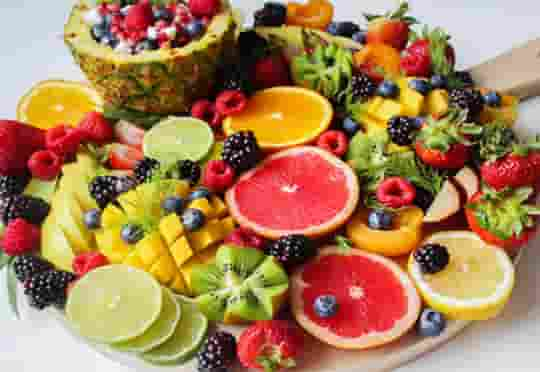The fruits and vegetables most strongly linked to weight loss.
Eating more fruits and vegetables is often recommended for weight loss, but not all fruits and vegetables are equally beneficial, research suggests.
In general, fruits may be more effective for weight loss than vegetables, according to a recent study of over 100,000 nurses.
The study found that the fruits and vegetables most strongly linked to weight loss are:
- berries,
- apples/pears,
- tofu/soy,
- cauliflower,
- and cruciferous and green leafy vegetables, like broccoli and Brussels sprouts.
The reason these foods are linked to more weight loss is probably because they make people feel fuller while containing fewer calories.
Researchers analysed dietary data from 133,468 nurses to reach these conclusions.
The nurses took part in a survey which tracked their weight, diet and intake of specific fruits and vegetables.
Twenty-four years of data showed that people eating fruits saw the greatest weight loss, while some vegetables were also linked to weight loss.
The study’s authors write:
“Thus, an increase in total fruit intake was associated with a change in weight over a 4-y interval of -0.53 lb (a weight loss of 0.24 kg) for each extra daily serving, and an increase in total vegetable intake was associated with a weight change of -0.25 lb (-0.11 kg) for each extra daily serving.”
Some vegetables linked to weight gain, however, included potatoes, peas and corn.
Even among vegetables that were linked to weight loss, the amount of weight loss depends on the glycaemic load, the authors write:
“Notably, higher-fiber, lower-glycemic load vegetables (for example, broccoli and Brussels sprouts) were more strongly inversely associated with weight change than lower-fiber, higher-glycemic load vegetables (for example, carrots and cabbage).”
The study’s authors concludes:
“Our findings support benefits of increased fruit and vegetable consumption for preventing long-term weight gain and provide further food-specific guidance for the prevention of obesity, a primary risk factor for type 2 diabetes, cardiovascular diseases, cancers, and many other health conditions.”
The study was published in the journal PLOS Medicine (Bertoia et al., 2015).

